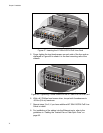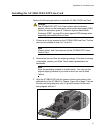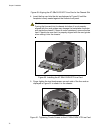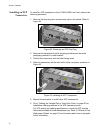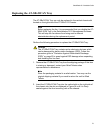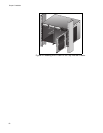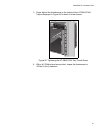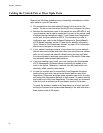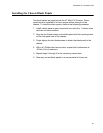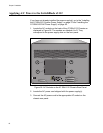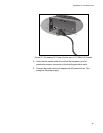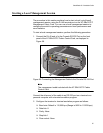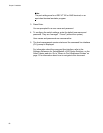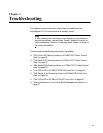
Chapter 2: Installation
82
Cabling the Twisted-Pair or Fiber Optic Ports
Observe the following guidelines when connecting a twisted-pair or fiber
optic cable to a port on the switch:
The connector on the cable should fit snugly into the port on the
switch. The tab on the connector should lock the connector into place.
Because the twisted-pair ports on the switch are auto-MDI/MDI-X, any
type of network device can be connected to a port on the switch using
a straight-through twisted-pair cable. If you disable Auto-Negotiation
on the port, the port defaults to MDI-X. For instructions on how to
configure a port, refer to the Software Reference for SwitchBlade®
x3100 Series Switches on the ATI web site for specific information.
Go to “Where to Find Web-based Guides” on page 13 for information
about how to navigate to this document.
If your network topology contains a loop where two or more network
devices can communicate with each other over more than one network
path, do not connect the network cables forming the loop until after
you have activated a spanning tree protocol on the switch. Data loops
can adversely affect network performance.
If you are creating a port trunk, you must configure the Switchblade
x3112 Management Software before connecting the cables of the
trunk to the switch. Otherwise, a network loop will result which can
adversely affect network performance.
In order for a switch port to successfully Auto-Negotiate its duplex
mode with an end node, the end node should also be using Auto-
Negotiation. Otherwise, a duplex mode mismatch can occur. A switch
port using Auto-Negotiation defaults to half-duplex if it detects that the
end node is not using Auto-Negotiation. This can result in a mismatch
if the end node is operating at a fixed duplex mode of full-duplex.
To avoid this problem, disable Auto-Negotiation on a switch port and
set the port’s speed and duplex mode manually if the end node has a
fixed duplex mode of full-duplex.



